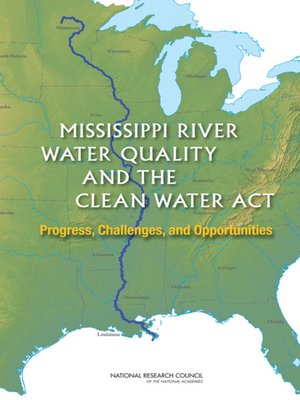Mississippi River Water Quality and the Clean Water Act
ebook ∣ Progress, Challenges, and Opportunities
By National Research Council

Sign up to save your library
With an OverDrive account, you can save your favorite libraries for at-a-glance information about availability. Find out more about OverDrive accounts.
Find this title in Libby, the library reading app by OverDrive.



Search for a digital library with this title
Title found at these libraries:
| Library Name | Distance |
|---|---|
| Loading... |
The Mississippi River is, in many ways, the nation's best known and most important river system. Mississippi River water quality is of paramount importance for sustaining the many uses of the river including drinking water, recreational and commercial activities, and support for the river's ecosystems and the environmental goods and services they provide. The Clean Water Act, passed by Congress in 1972, is the cornerstone of surface water quality protection in the United States, employing regulatory and nonregulatory measures designed to reduce direct pollutant discharges into waterways. The Clean Water Act has reduced much pollution in the Mississippi River from "point sources" such as industries and water treatment plants, but problems stemming from urban runoff, agriculture, and other "non-point sources" have proven more difficult to address. This book concludes that too little coordination among the 10 states along the river has left the Mississippi River an "orphan" from a water quality monitoring and assessment perspective. Stronger leadership from the U.S. Environmental Protection Agency (EPA) is needed to address these problems. Specifically, the EPA should establish a water quality data-sharing system for the length of the river, and work with the states to establish and achieve water quality standards. The Mississippi River corridor states also should be more proactive and cooperative in their water quality programs. For this effort, the EPA and the Mississippi River states should draw upon the lengthy experience of federal-interstate cooperation in managing water quality in the Chesapeake Bay.







